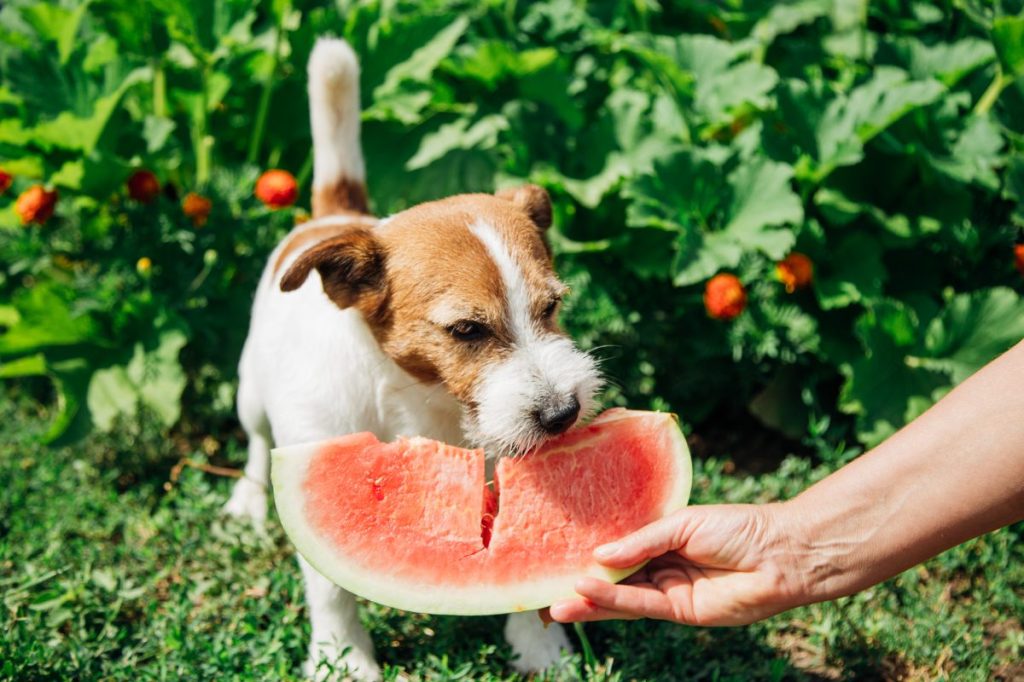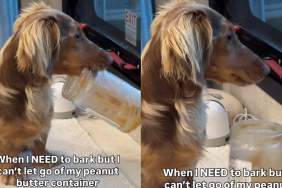Although sharing human foods with dogs may be the subject of debate, it’s also part of the experience of being a dog lover. We know it can be hard to resist those begging eyes! But it’s crucial to only share what is safe for them, and probably worth considering exactly when you share it as well.
Unfortunately, many foods for humans can be toxic for dogs, so always do your research. The good news is that there are plenty of nutritious human foods that are ok. for dogs to eat. Here’s what you should know.
What human foods are safe for dogs?
You can certainly give your dog human foods daily to keep them healthy and happy. Keep in mind that every dog is unique and individual. Some may have allergies or be sensitive to certain foods, so take it easy at first and always watch for signs of any reactions. It’s always smart to consult your vet before introducing any new foods to your dog’s diet.
Here are just a few of the foods you can add to your dog’s diet that will benefit their health:
Apple slices
A couple of apple slices can help freshen your dog’s breath. However, the core and seeds of an apple are toxic, so make sure to keep them out of the mix.
Blueberries
Blueberries are a great summer snack for dogs. Just pop them into the freezer for a few hours, and your pup now has an icy treat to cool them down in the heat of summer.
Broccoli
Broccoli is a great source of fiber and vitamin C when given in moderation.
Carrots
Carrots are a low-calorie vegetable packed with vitamins A, C, and B, as well as fiber and potassium. These crunchy veggies can also help with your dog’s dental health and offer your pup a satisfying crunch without the risks posed by bones..
Cheese
If your dog is not lactose intolerant, a little low-fat cheese won’t hurt them. Low-fat cottage cheese can be great to mix into dry kibble now and then as a treat. Be sure to monitor your dog’s reaction to cheese.
Cooked chicken
This one comes with a caveat: no bones! Chicken bones are incredibly bad for dogs. But boneless chicken, when cooked, is a great source of protein. If you’re ever in a pinch, it can make a great replacement meal, too. Be sure to remove the skin, as it’s full of fat and can lead to digestive issues like pancreatitis. You’ll also want to make sure the chicken isn’t seasoned with anything like garlic, onion, or too much salt.
Peanut butter
Peanut butter is full of heart-healthy fats and vitamins B, E, and niacin. What dog doesn’t love a little peanut butter stuffed into a Kong? It’s best to get unsalted and low-sugar peanut butter if you can. However, always check the ingredients in your peanut butter and avoid xylitol. This is a sweetener that is perhaps the most toxic human food to dogs. If your peanut butter has it, choose a different brand before giving it to your dog.
Pumpkin
Pumpkin is a digestive aid that can also help with diarrhea in dogs. It’s always good to keep a can of pumpkin in the cupboard.
Salmon
Everyone needs omega-3 fatty acids, even dogs! Salmon will help keep your dog’s coat shiny and healthy, and also help boost their immune system. Salmon should be cooked, or you can use salmon oil in small amounts. If you’re not into eating the salmon skin, your pup would love it! Offer this sparingly, as the skin is also very high in fat, which can cause some tummy upset in dogs.
Scrambled eggs
A scrambled egg is a great protein boost, and most dogs can’t resist them. If your dog isn’t feeling well or is having trouble eating, this could be a great way to get some protein in them.
Watermelon
Watermelon is a refreshing, healthy treat that can help your pup stay hydrated. Just make sure it’s seedless.
Take it slow when introducing human foods
Always introduce human foods slowly and in moderation. Even though your pup likes a certain human doesn’t mean the food is safe (we’re looking at you, chocolate). Some foods can be harmful or even fatal to dogs, and others may trigger unknown allergies.
If you’re looking for other healthy snack options, ways to liven up your dog’s usual kibble, or need guidance on appropriate portion sizes, consult your vet. They can help you make the best choices for your dog’s diet.









